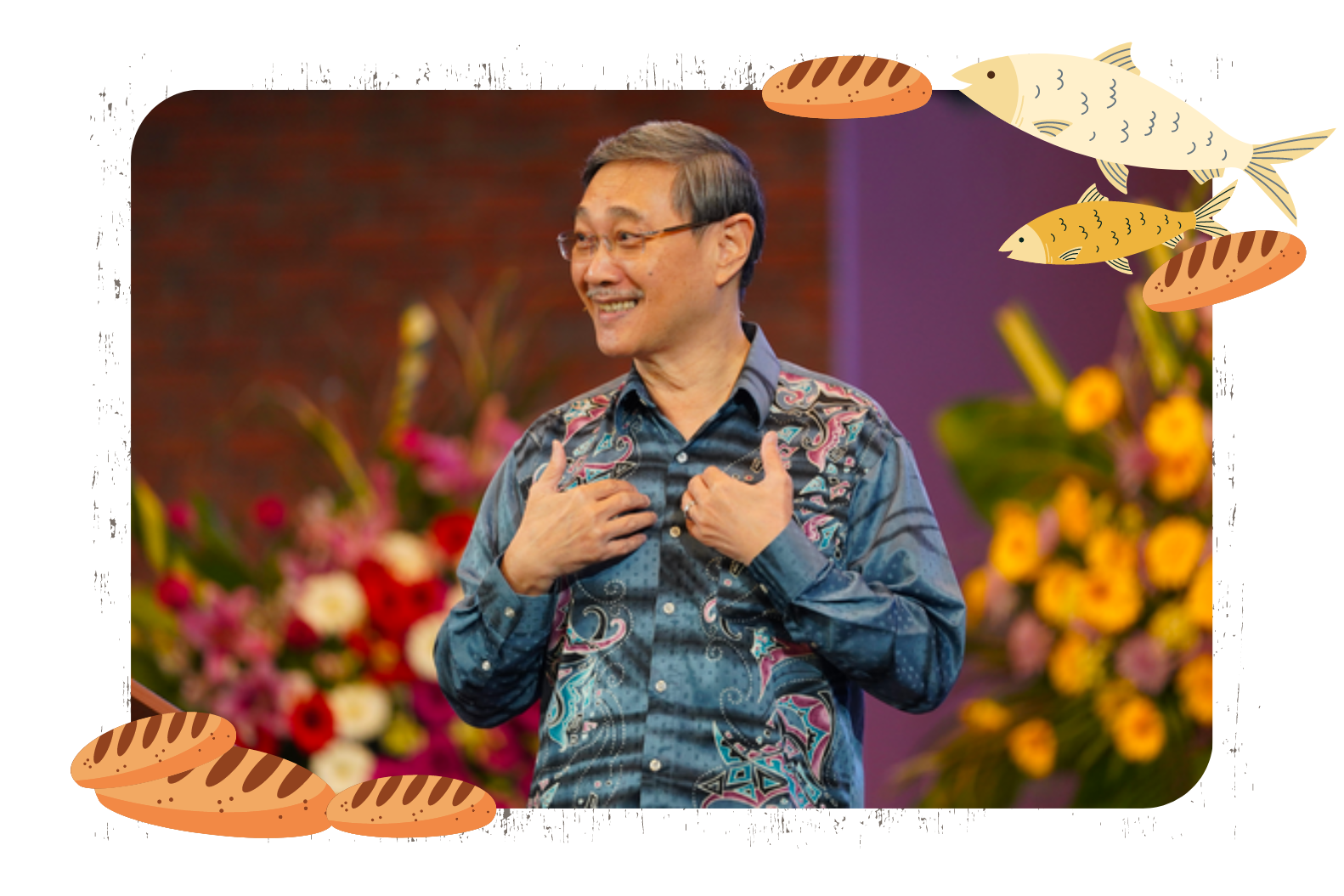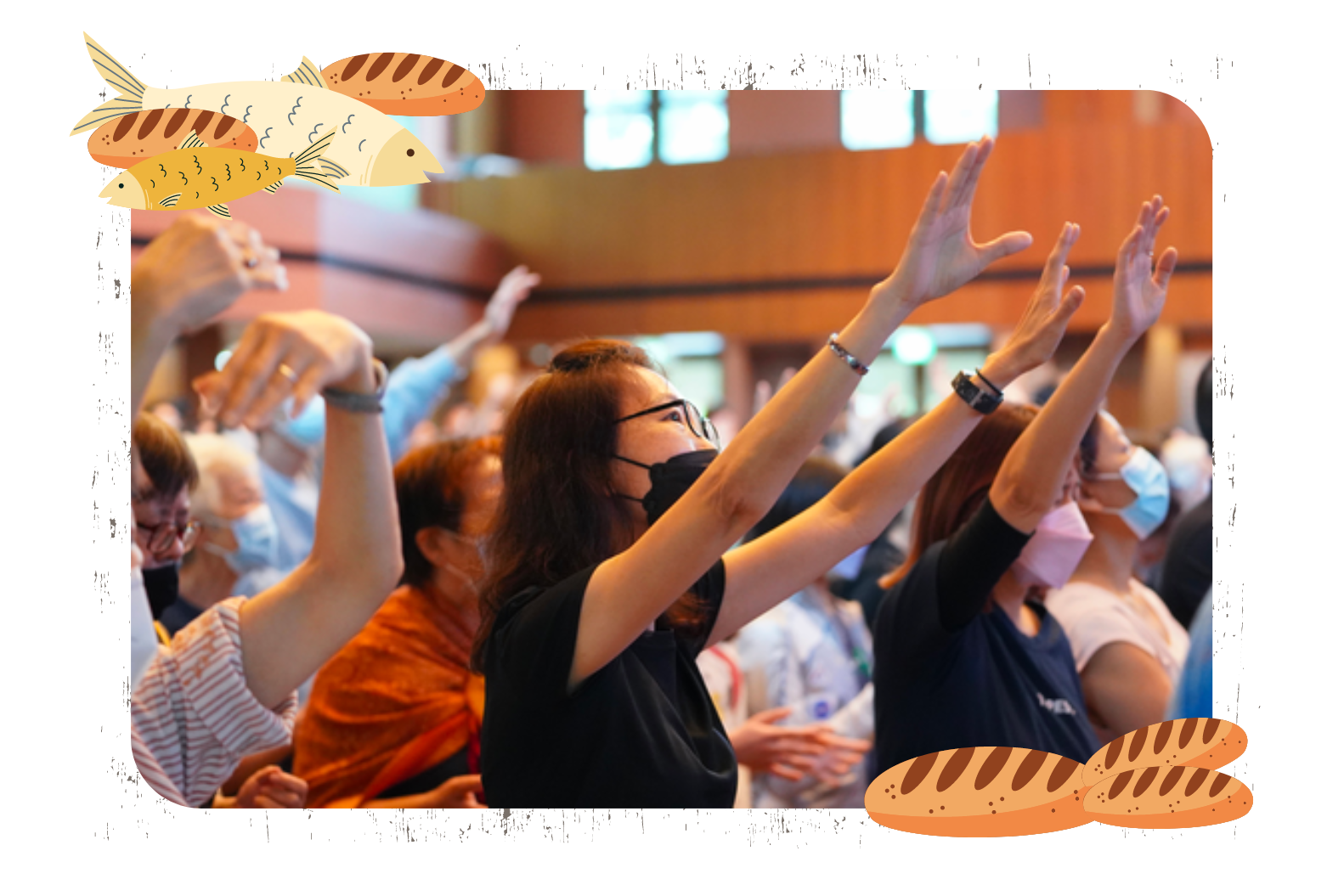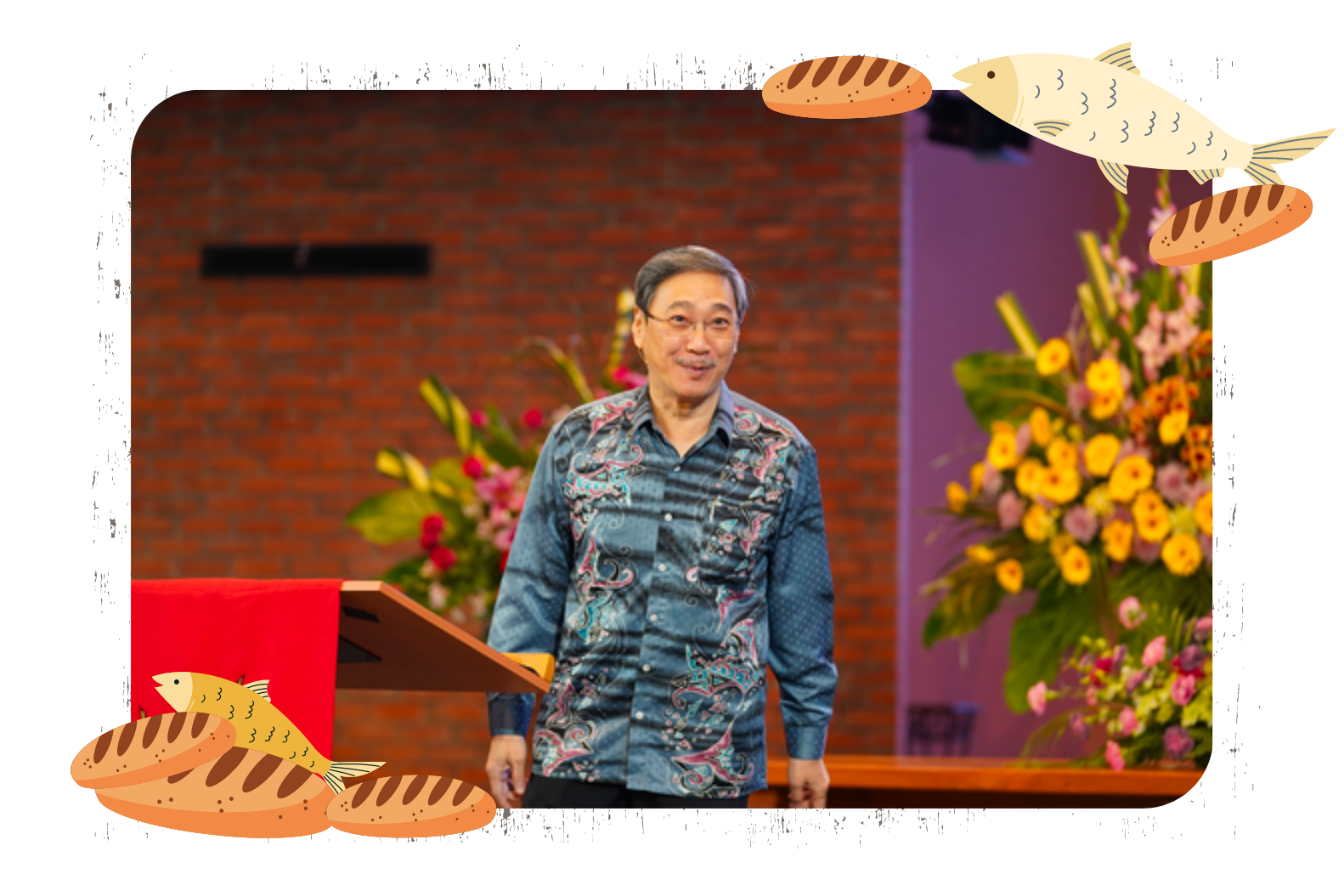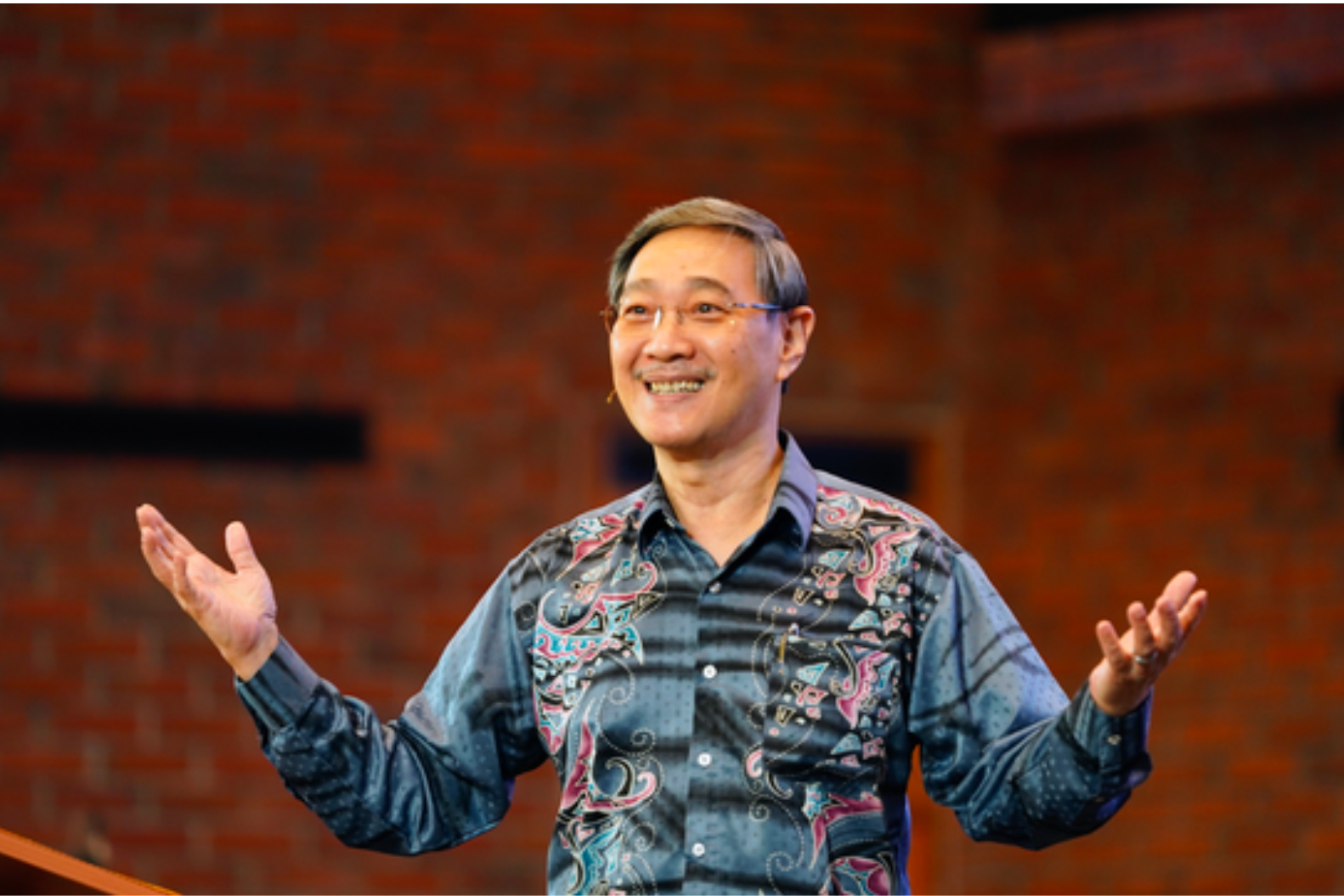The following article is adapted from a message given by Reverend Edmund Chan, Leadership Mentor of Covenant Evangelical Free Church, on Day 1 of Paya Lebar Methodist Church‘s (PLMC) Conference 2022. The overall theme of the conference was uniting the Church across generations towards a single purpose, and Rev Chan kicked things off with a sobering reminder that before corporate oneness can happen, we need to get our personal lives right first.
There are no church problems.
Let me tell you why there are no church problems: If you think deeper, it’s a people problem.
Then you think even deeper. It’s not just a people problem — it’s a heart problem.
It’s an obedience to God problem. Why is it so hard to obey God?
If we really believe in God and have faith in Him, it’s easier to obey. That is why in Romans 1:5, faith and obedience are joined together.

When we follow Jesus, we mature in Him. We grow in our faith.
And when we grow in our faith, we follow Him in our obedience.
In that obedience, our hearts are tuned to Him. When our hearts are tuned to Him together, we have an amazing unity — we have a “people potential” for the Kingdom of God!
What we need to do therefore, is to reclaim lost grounds. One of the great grounds of discipleship we must reclaim is the next generation.
If we don’t pay attention to the next generation, we might win the battle today but lose the war tomorrow.
Discipleship is all about following Jesus. It is about leading the next generation: Not unto us, but to follow Him.
Learning from Deuteronomy
Now imagine: If you are 120 years old, and you have the chance to speak to the next generation — what will you tell them?
That’s what the book of Deuteronomy is all about. Moses was 120 years old. It was around the final month of his life.
He gave three principles to the next generation so that they would have a tapestry of faith for generations unbroken.
So, these are the three principles I am going to share with you.
1. Live a Distinct Life
We are called to be different. To be distinct, to be a certain kind.
It’s all about a certain kind of person, radically committed to a certain kind of purpose, who through a certain kind of process (like disciple-making or investing in the lives of others) reproduces a certain kind of product: The disciple, the follower of Jesus Christ.

Moses gave us a highlight of an individual by the name of Caleb who showed us what kind of life that is (Deuteronomy 1:35-36).
Note that it wasn’t Caleb’s exploits, accomplishments or his position of authority that was highlighted by Moses.
Rather, it was one quality of Caleb that was highlighted for us: He wholly followed the Lord.
In Christianity today there is a need for wholeheartedness. Not half-heartedness, not lukewarmness.
Our lukewarmness offends God. He calls us to be on fire for Him. He calls us to walk in His radical revival.
Sometimes in our Christian lives, we swing to extremes. Either we are so terrified to follow in faith in obedience, or we walk in presumptuousness and presumptuous faith.
But what’s the key of living a distinct life?
“Only take care, and keep your soul diligently, lest you forget the things that your eyes have seen, and lest they depart from your heart all the days of your life. Make them known to your children and your children’s children—” (Deuteronomy 4:9, ESV)
True religion and true worship begins from the inside out.

There is a story of a king with four wives. It was told by his court physician that he had a terminal disease and was dying.
So he went to the first wife whom he loved and had adorned with beautiful clothes and lavished with fine food and exquisite wine.
He said to her: “I’m going to the land of the departed soon. Would you follow me into the land of the departed?”
And the first wife said, “I cannot follow you. I’m sorry.” And she walked away.
The king was brokenhearted. He went to the second wife whom he loved to show off to his to his neighbours because she was fabulously beautiful.
“I’m going to the land of the departed, will you follow me and come along with me?” he asked. The second wife said, “I cannot follow you. In fact, when you go, I will remarry.”
He went to the third wife who had been there for him through the ups and downs of life.
He said to this faithful wife, “Thank you so much for being with me in the ups and downs of life, would you accompany me to the land of the departed? “
And the third wife said, ” I love you very much. But the best I can do for you is to prepare a good funeral for you.”
And then there was a fourth wife: A neglected wife, a wife he didn’t pay attention to.
She came to him and she said, “I will follow you to the land of the departed.”

All of us have four wives. The first wife is our body, our body we adorn with clothes and feed with food. But it cannot follow us to the afterlife.
The second is our possessions: Attractive, and we like to show it off to our neighbours. But when we die, the possessions cannot follow us. In fact, somebody else will inherit our possessions.
The third wife is our family. Our family members are with us through the thick and thin of life. But when we go, the best thing they can do for us is to give us a good funeral.
We pay so much attention to other things that we have neglected the soul.
Only one thing will accompany us in the afterlife (like the fourth wife): The soul that is within.
But the problem is we pay so much attention to other things that we have neglected the soul.
You have to pay special attention to take care and keep your soul diligently lest you forget. Spiritual amnesia is the chief bane of the contemporary church.
What makes us distinct is the soul that is within.
Cultivate your soul, brothers and sisters. Cultivate a soul that is sensitive unto Him. A soul that is responsive unto Him. A soul that is surrendered unto Him.
2. Live a Directed life
The directed life is a life where we want to seek the will of the Father and walk as He directs. In our relationship with God, He gives us stipulations of what it means to walk with Him.
In Deuteronomy 6:4-7 (ESV), it says: “Hear, O Israel: The Lord our God, the Lord is one. You shall love the Lord your God with all your heart and with all your soul and with all your might. And these words that I command you today shall be on your heart. You shall teach them diligently to your children.”
The Hebrew concept of hearing is not just listening. It is listening with a response of obedience.
So, the better understanding of the word here is to obey and follow.
Christianity is not rocket science. Discipleship demystified comes down to a very simple foundation: You shall love the Lord your God.
And this love is not some sentimentality. It is love with the heart.
The heart is your innermost being — who you really are in the citadel of your life.
There in the inner sanctuary, must one find love for God.
That’s the key to living a directed life!
Otherwise, we don’t want to be directed; we are afraid to be directed. We only want to be directed by God when love resides within.

When the year was turning 2000, I was about 41 years old. I came before the Lord, and my prayer was simple but sincere: “Lord, what’s Your agenda for the Church in the 21st century?”
I took my Bible, took my journal, went to a quiet place and prayed.
But the Lord was silent. So I came before the Lord and said, “Lord, I know we’re entering into a new term, a new century. Teach me what questions to ask.”
And immediately the Lord responded very clearly. He spoke to my heart, “Son, ask me what’s my agenda for you.”
And immediately I understood. Not me as a pastor, not me as a Christian leader. Me as a child, a son of God.
Suddenly on the holy ground of prayer, there was a whisper, a holy whisper: “The Shema confession of the Jews.”
I started to cry before the Lord. Lord, I love You. I want to love You, but I know I cannot love You like that. Why?
The Lord spoke to me: “Because of four things, son.”
- The primal wounds of the heart
- The cynicism of the mind
- The paralysis of the will
- The overcrowding of the soul
God’s desire for you and I is to love the Lord our God with everything we’ve got by embracing His love for us. We love Him because He first loved us.
You are precious to Him as an individual, as a child of God. You’re precious to Him as the Church. And He wants to unite you in that love.
3. Live a devoted life
There is a binary system and the system is this: Are we walking in idolatry or in intimacy?
You cannot walk with God while holding hands with the Devil.
Moses gives us the key in Deuteronomy 28. We look at verse 47: “Because you did not serve the Lord your God with joyfulness and gladness of heart, because of the abundance of all things”.
You become distracted. You fail to love the Lord with joy and serve Him with gladness.
Are we walking in idolatry or in intimacy?
When we walk in intimacy with God whatever the circumstances of life, there is a joy inside us. There is this bubbling joy that will impact generations.
They are looking for us as a people of God to arise, to worship, to love Him, to celebrate Him, to walk in His power and in His love.
To walk as a devoted people of God!
We have to ask ourselves, what then are the joy-robbers of life?
- Worry
- Fear
- Anxieties
- Sin
- Disobedience
- Forgetting God
All these things rob us of joy and they all culminate in one singular idea that the Book of Deuteronomy warns about, over and over again: Idolatry in our lives.
Today we have a choice to make: Idolatry or intimacy?
You choose. But choose carefully, because your choice will influence your tapestry. Your choice will influence the generations.
Over the PLMC Conference, Rev Edmund Chan delved deeper into what the Church can do to weave the tapestry, untangle knots within the community and complete the masterpiece of unity. Look out for more of our coverage in the coming days!
- What is one thing from Rev Edmund Chan’s sharing that impacted you?
- Of the three kinds of lives, which one do you see yourself needing to work on?
- What is one practical thing we can do with our lives to begin setting an examples for the generations to come?









